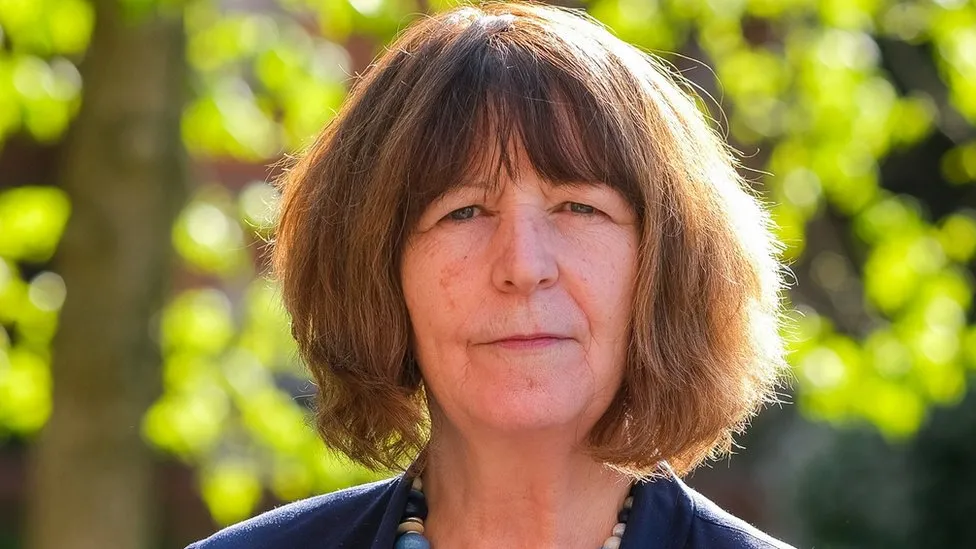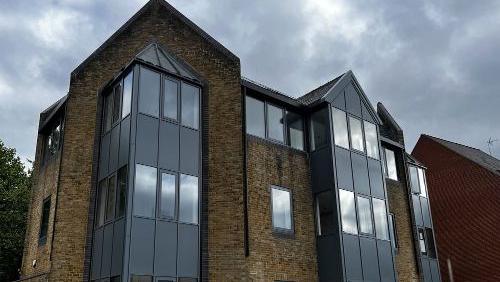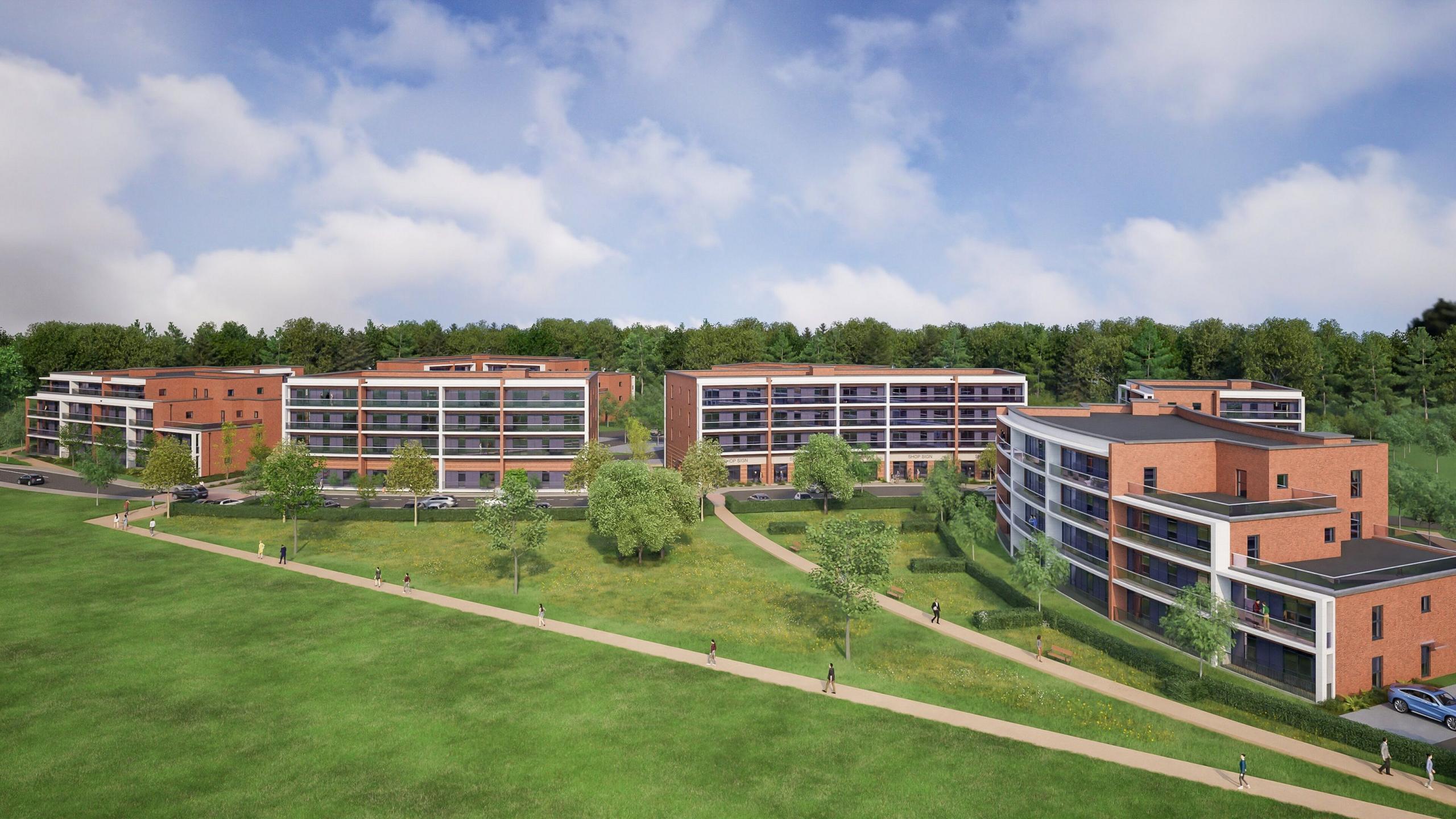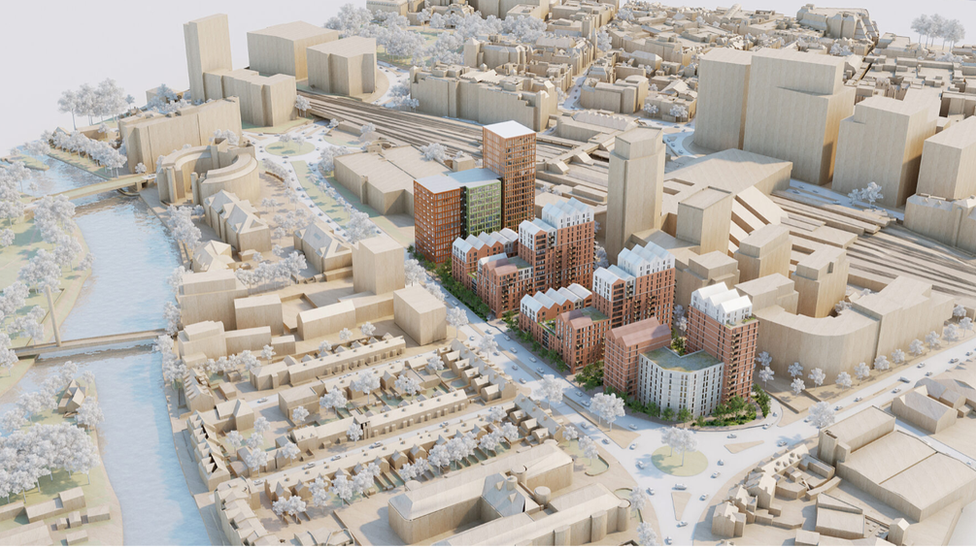Deputy leader shocked by housing numbers 'bombshell'

Denise Gaines, West Berkshire Council deputy leader, says local democracy is at risk
- Published
A decision to more than double the number of homes planned for a Berkshire district has been described as “a bombshell” by a senior councillor.
The government has told West Berkshire Council to allow the building of 1,057 homes a year, rather than the current figure of 495.
Neighbouring Wokingham Council will need to allow at least 1,308 new homes a year, up from 748.
Looking at Berkshire as a whole, the Labour government said the county’s councils have been told to allow at least 7,400 new homes a year, a rise of more than 40%.
The government said these targets will now become mandatory, after they were watered down by the Conservatives in 2022.
West Berkshire Council will see the biggest rise in the county and its deputy leader Denise Gaines said: “In terms of housing figures, the increase is rather a bombshell for West Berkshire.
“It does feel like a real blow to local democracy that means the course for future development and the number of homes built in West Berkshire will be determined by Westminster and not by us.”
Council-by-council housing breakdown
Bracknell – 563 (in 2018) to 767
Reading – 878 to 1,023
Slough – 856 to 801
West Berkshire – 495 to 1,057
Windsor and Maidenhead – 866 to 1,341
Wokingham – 748 to 1,308
Labour’s housing secretary Angela Rayner admitted her plans “won’t be without controversy” but said changes were essential to make housing more affordable.
Peter Stevens lives in Wokingham and is a member of the Save Our Loddon Valley Environment campaign group (SOLVE), set up to stop what it claims is increasing overdevelopment of the area.
He said: “People are moving out of London. They’re selling off their expensive places and moving to places like Wokingham and they’re expecting to move to the country. In the area I live in they’ve already taken a number of houses.”
Every Berkshire council will have to allow more houses than it did previously from now on.
The only exception is Slough, which will see its annual housebuilding target fall from just over 850 a year to 800.
The government said its plans would make it easier to build on low-quality green belt land, which will now be classified as “grey belt”.
Councils will now be poring over their maps to see which areas actually qualify as such.
Campaign groups like SOLVE are unlikely to take these new housing targets lying down, but the government said counties like Berkshire needed to play their parts to help meet its wider aim of building 370,000 new homes a year across the UK, up from the current target of 300,000.
Follow BBC South on Facebook, external, X (Twitter), external, or Instagram, external. Send your story ideas to south.newsonline@bbc.co.uk, external or via WhatsApp on 0808 100 2240, external.
Related topics
- Published10 July 2024

- Published23 June 2024

- Published22 April 2024

- Published24 March 2024
